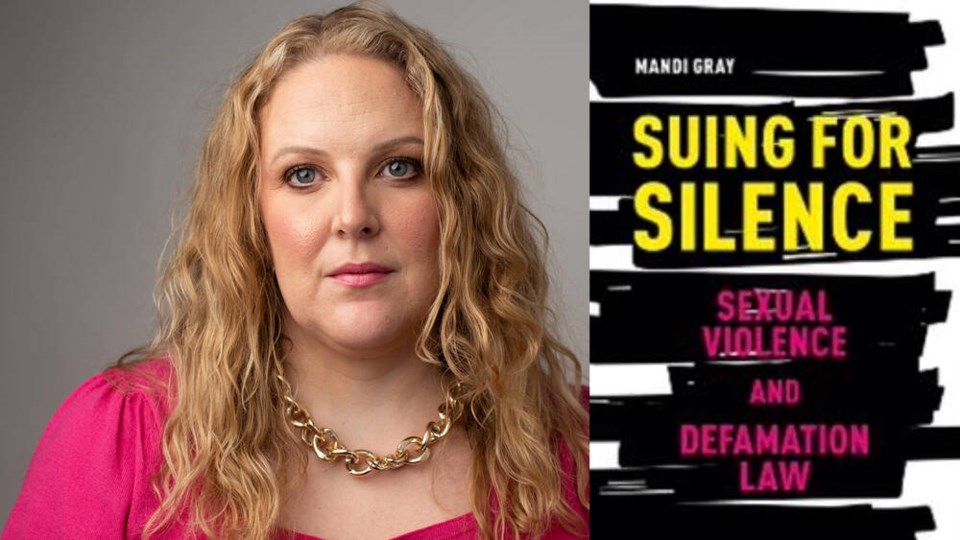It’s been almost seven years in the making, so witnessing Suing for Silence: Sexual Violence and Defamation Law finally come to fruition feels like a small win for author and anti-violence activist Mandi Gray.
Drawing on media reports, courtroom observations, and interviews with survivors, activists, and lawyers from across the country, Gray, an assistant professor at Ontario's Trent University and a survivor herself, offers a detailed investigation into the defamation lawsuits that silence sexual violence victims.
She hopes the book sparks public discussion about a topic often deemed too difficult and sensitive to broach. Gray will be leading that conversation in the weeks that follow the book's release, when she'll be taking Suing for Silence on the road to libraries across the country.
The tour, kicking off in Toronto and ending in Ottawa, will land at the North Vancouver City Library March 21.
“Books like this, and gathering people together to create a space for healing, will improve the lives of the women, girls, and gender diverse folk who are most likely to experience sexual violence in their lifetime,” she said.
Suing For Silence as an idea was born in 2017, when Gray, already heavily involved in the local activist movement, heard from two women who had reported sexual violence only to then be sued by the person reported.
“Both of these women had taken all the steps that the ideal victim is supposed to take, one reported to the police, the other reported to her workplace, and in both situations they were sued for doing what you’re told you’re supposed to do in such circumstances,” she said. “I thought that was really concerning, especially seeing how fearful both of these women became about talking about sexual violence generally, and the impact it had on their careers and finances, and lives in general.”
Shocked to know of two women who had endured similar experiences, Gray asked a civil litigator whether such situations were common. The litigator was currently representing women in several lawsuits for similar circumstances, she said.
“It was so common but just not talked about, and I decided this was something that hadn’t really been explored enough,” Gray added.
The findings in the book raise awareness of the suits within the anti-violence movement and offer several opportunities for public education. There are specific findings that Gray, whose own sexual assault story was featured in the documentary film Slut or Nut: The Diary of a Rape Trial, hadn’t even been aware of herself.
Most people wouldn’t know, for example, that victims who make a formal report to the police at a university campus or workplace aren’t always protected from a lawsuit. Even when such lawsuits are unsuccessful, the costs, emotional consequences and "complete havoc and chaos” that they can wreak on someone’s personal life is pretty significant, Gray said.
“I really hope that not only will there now be more knowledge about the realities of making these reports, but there will also be an encouraged discussion about policy makers and people working within the legal system,” she said. “How can we better protect the people reporting a crime that is historically under-reported?”
Gray hopes that her tour will attract those who are in the position to make important changes to laws and policies, whether on campus or in the workplace, to better protect people from legal retaliation and brutality.
The “most important audience” that Gray hopes to witness, however, is that of the women who have experienced such situations, and are fearful of speaking out because they’ve had legal action against them.
“It often pushes them out of the public sphere, it often silences them from engaging in discussions about sexual violence, and so I hope that they feel that I’m capturing their stories,” she said. “I hope we can create a place where people feel heard.”
Mina Kerr-Lazenby is the North Shore News’ Indigenous and civic affairs reporter. This reporting beat is made possible by the Local Journalism Initiative.



